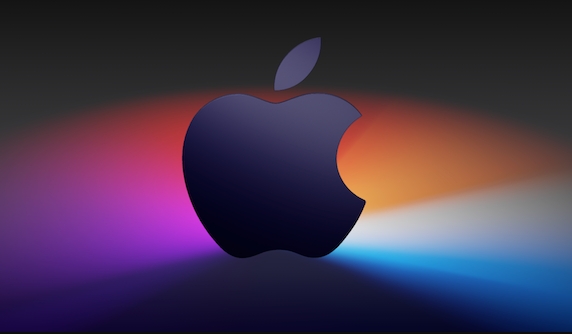To switch sound output devices on your Mac, first click the volume icon in the upper right corner of the screen, select the target device from the pop-up device list to quickly switch; if you need to set up more detailedly or troubleshoot problems, you can go to the "System Settings" → "Sound" → "Output" tab for adjustment; in addition, you can also use third-party tools such as SoundSource and QuickSwitch to achieve more efficient switching.

Want to switch sound output devices on your Mac? It's actually very simple. The system's own settings can be done without additional software.

The system comes with menu bar toggle
The most direct way is to operate it through the sound icon in the upper right corner of the screen. After clicking the volume icon, a device list will pop up, showing the currently available audio output devices, such as built-in speakers, headphones, external speakers or Bluetooth devices, etc.
- Find the device you want to use, click it to switch immediately
- This method is suitable for people who change their equipment frequently, such as using headphones and external speakers at a time
- If you don't see the device you want to select, you can check the connection status first, or see if it is muted or turned off the output permissions.
This method is fast and suitable for daily quick switching.

Management of output devices through system settings
If you need more detailed settings, or encounter the problem of not automatically switching sounds, you can adjust them in your system preferences.
Open the "System Settings" → "Sound" → "Output" tab, where you can see all supported output devices. Choose one and the sound will turn over immediately.

- Some devices may appear in multiple options at the same time (for example, headphones with microphones have two options: input and output)
- If you use a third-party audio driver (such as a USB sound card), you may also see additional options here.
- If a device cannot be found, you can try unplugging the device or restarting the audio service (via the terminal command
sudo killall coreaudiod)
This method is more suitable for troubleshooting problems or making long-term settings.
Use shortcuts or third-party tools
Although the system comes with its own functions are enough, if you pursue faster operations, you can also try some efficiency tools.
for example:
- SoundSource : Provides one-click switching of the menu bar, and can also adjust the volume of each application.
- QuickSwitch : Free gadgets designed to quickly switch audio devices
- Write a script with AppleScript and use shortcut keys to achieve custom switching
These tools are suitable for users who often switch between multiple devices, such as video conferencing, music production, or multitasking scenarios. Ordinary users actually don’t need it very much, but if they get used to it, they will save a lot of time.
Basically these are the methods. The system's own method can meet most situations, but sometimes it is easy to ignore the menu that can be directly clicked in the upper right corner.
The above is the detailed content of How to change the sound output device on Mac. For more information, please follow other related articles on the PHP Chinese website!

Hot AI Tools

Undress AI Tool
Undress images for free

Undresser.AI Undress
AI-powered app for creating realistic nude photos

AI Clothes Remover
Online AI tool for removing clothes from photos.

Clothoff.io
AI clothes remover

Video Face Swap
Swap faces in any video effortlessly with our completely free AI face swap tool!

Hot Article

Hot Tools

Notepad++7.3.1
Easy-to-use and free code editor

SublimeText3 Chinese version
Chinese version, very easy to use

Zend Studio 13.0.1
Powerful PHP integrated development environment

Dreamweaver CS6
Visual web development tools

SublimeText3 Mac version
God-level code editing software (SublimeText3)

Hot Topics
 Can I Show the Dock on All Screens on Mac? Using Dock on Different Displays in macOS
Jul 03, 2025 am 09:30 AM
Can I Show the Dock on All Screens on Mac? Using Dock on Different Displays in macOS
Jul 03, 2025 am 09:30 AM
If you're using a Mac with multiple monitors, you might be curious about how to display the Dock on all screens or whether it's possible to add a Dock to secondary displays.The good news is that you can configure the Dock to appear on any screen conn
 How to Remove Old Devices from Apple ID on Mac
Jul 07, 2025 am 09:08 AM
How to Remove Old Devices from Apple ID on Mac
Jul 07, 2025 am 09:08 AM
If you've owned multiple Apple devices over the years, you might find yourself in a situation where some of those older Macs, iPhones, iPads, or other Apple hardware have been sold, given away, or traded. No matter how they left your possession, it's
 How to Play Fortnite on Mac with FnMacAssistant & Sideloadly
Jul 05, 2025 am 09:21 AM
How to Play Fortnite on Mac with FnMacAssistant & Sideloadly
Jul 05, 2025 am 09:21 AM
Fortnite is once again available for iPhone and iPad users, bringing joy to many gamers. However, there's still no official version for Mac (at least not yet). Despite that, Apple Silicon Mac owners aren’t completely out of luck—you can run the iOS/i
 How to Enable iCloud Private Relay on Mac
Jul 05, 2025 am 09:36 AM
How to Enable iCloud Private Relay on Mac
Jul 05, 2025 am 09:36 AM
iCloud Private Relay is an excellent privacy feature included with the iCloud subscription, designed to safeguard your online activity and browsing by masking your IP address (using a temporary one) and encrypting DNS lookups. This prevents third pa
 How to Allow Apps During Downtime on Mac
Jul 04, 2025 am 09:03 AM
How to Allow Apps During Downtime on Mac
Jul 04, 2025 am 09:03 AM
Are you using Screen Time to manage your or your child’s Mac usage? If yes, you likely already know that it allows you to set app limits, schedule downtime on the Mac, and more. Additionally, you can also choose specific apps that remain accessible a
 How to Make MacOS Sequoia Feel Faster: Tips to Speed Up Slow MacOS
Jul 05, 2025 am 09:28 AM
How to Make MacOS Sequoia Feel Faster: Tips to Speed Up Slow MacOS
Jul 05, 2025 am 09:28 AM
macOS Sequoia is a solid operating system that brings some impressive features like iPhone Mirroring, and while performance is excellent for many users, not everyone experiences the same level of speed. If you're finding macOS Sequoia slower than pre
 How to See All Links Shared in Messages on iPhone & iPad
Jul 05, 2025 am 09:31 AM
How to See All Links Shared in Messages on iPhone & iPad
Jul 05, 2025 am 09:31 AM
If you frequently use iMessage, then you've likely shared numerous web links in your chats — maybe an article, a video, a tweet, a song, or anything else. Locating these links later can be quite frustrating, but thankfully there's a simpler method th
 Create a MacOS Tahoe 26 Beta VM with Three Commands in Terminal Using tart
Jul 06, 2025 am 09:28 AM
Create a MacOS Tahoe 26 Beta VM with Three Commands in Terminal Using tart
Jul 06, 2025 am 09:28 AM
Advanced Mac users familiar with the command line can swiftly set up a MacOS Tahoe 26 beta virtual machine by entering a few commands into Terminal, using tart. Tart is a command-line utility for managing virtual machines and offers one of the quicke






